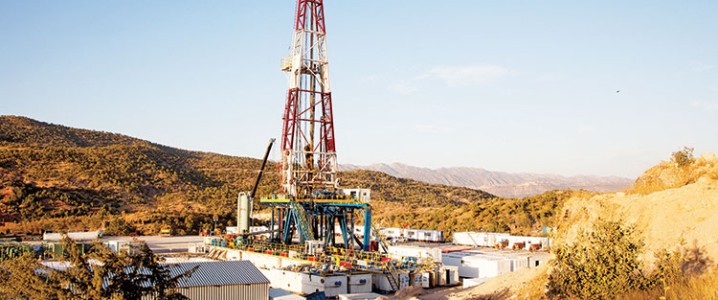It has been just over a year since the Federal Government of Iraq (FGI), centered in Baghdad, imposed an embargo on oil exports from the semi-autonomous region of Kurdistan (KRI), headquartered in Erbil.
Over this period, various voices, including politicians, analysts, and executives of international oil companies operating in Kurdistan, have criticized the embargo as illogical for all involved parties. However, when viewed through the lens of FGI’s agenda to eliminate Kurdistan’s autonomy, the embargo emerges as a strategic tool.
The destruction of Kurdistan’s financial independence, heavily reliant on its independent oil supplies, serves as a primary mechanism for Baghdad to erode Erbil’s autonomy. Once Kurdistan’s ability to function independently is dismantled, Baghdad aims to reintegrate the region into a unified Iraq, consolidating control over its oil and gas resources under a new unified oil law.
The timing of the embargo, shortly after the signing of the Iran-Saudi Arabia relationship resumption deal in March 2023, underscores geopolitical motivations. By sidelining Western involvement in Iraqi energy deals and aligning closer with the new Iran-Saudi axis, Baghdad aims to challenge Western hegemony in the Middle East.
Why Is Iraq Holding International Oil Companies Responsible for the Ongoing Delay in Kurdish Oil Exports? (Credits: The Cradle)
Blaming international oil companies for the embargo’s continuation serves as a tactic to obscure the true reasons behind the cessation of oil supplies from Kurdistan. Baghdad seeks to prolong the embargo until Kurdistan is financially weakened and compelled to accept terms that erode its independence, effectively bringing it under Baghdad’s administration.
Baghdad’s stance is grounded in its interpretation of the Iraq Constitution, which asserts national ownership of oil and gas resources. Baghdad argues that international oil companies operating in Kurdistan without revising contracts in accordance with the Constitution are acting illegally.
Iran, Russia, and China support the financial strangulation of Kurdistan, fearing the precedent of continued Kurdish independence. These countries have strategic interests in Iraq’s stability and oppose any fragmentation that complicates the administration of Iraq’s oil and gas sector.
Efforts to undermine Kurdistan’s independence have been evident through military and diplomatic actions. Iran, Turkey, and Syria, with significant Kurdish populations, oppose Kurdish independence to prevent similar movements within their own territories.
Russia and China seek to maintain stability in Iraq to safeguard their interests in its oil and gas sector. Both countries have leveraged economic agreements to expand their influence in Iraq, contributing to the push to reintegrate Kurdistan into a unified Iraq.
Despite calls for Kurdish independence, the embargo persists, reflecting Baghdad’s determination to assert control and prevent the resurgence of an independent Kurdistan. As Baghdad consolidates authority over Iraq’s energy sector, the prospect of an independent Kurdistan fades, aligning with its vision of national unity.
